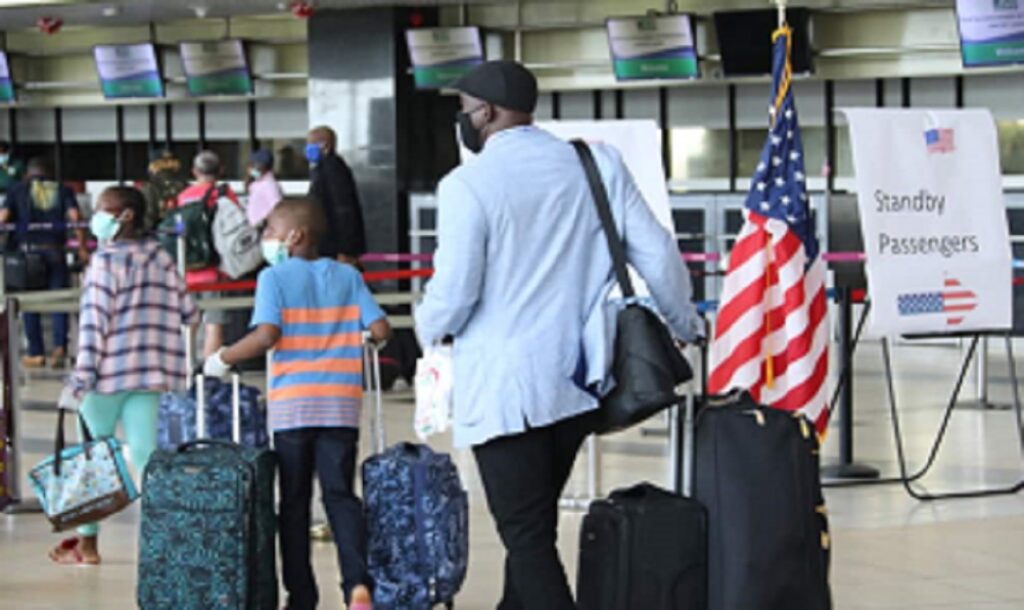By Olaitan Ibrahim
A growing wave of Nigerians are desperate to leave their homeland in search of better opportunities, as “japa”— a colloquial term for emigration—intensifies amid worsening economic hardship, recent polls show.
According to data from the Gallup World Poll, which reaches over 99 percent of the world’s population, the desire to emigrate among Nigerians has surged 29 percent over the past decade. Between 2010 and 2012, 41 percent of Nigerian adults expressed a willingness to leave the country if given the chance. This figure rose to 48 percent between 2015 and 2017.
Though the COVID-19 pandemic severely disrupted people’s mobility worldwide, it didn’t stop Nigerians from wanting to move. By 2021, a record 53 percent of Nigerians said they would leave if they had the chance.
The willingness to japa reached a fever pitch in 2022 when a separate Gallup international survey found that 71 percent of Nigerian adults were willing to relocate “if provided the necessary paperwork.”
Another source, disclosed in 2023 that 63 percent of adult Nigerians nationwide said they are willing to relocate to other countries if given an opportunity. This was especially significant among the South-Easterners where 74 percent of adults were ready to leave, followed closely by the South-South (70 percent) and South-West (63 percent). Notably, settlers in most northern states declined.
The drivers behind the will to ‘japa’
“The reasons to change the state where you live are for sure various and countries comparisons are maybe not quite appropriate. Obviously the economic circumstances dominate such a decision but by far they are not the only ones,” said Kancho Stoychev, president of Gallup International.

In Nigeria, economic opportunities—or the lack thereof—are the primary motivators for those looking to leave. Checks found that 50 percent of Nigerians believe those living abroad enjoy better living conditions, while 54 percent think they have greater opportunities compared to Nigerians at home. Also, a considerable proportion, over 51 percent are confident that Nigerians living in foreign countries are better off financially.
Nigeria’s ongoing economic crisis is marked by soaring food and fuel prices, rampant unemployment, and a struggling naira, which has left many, particularly young people, yearning for a fresh start elsewhere.
“Young people — arguably the most mobile population on the planet — are more likely to express a desire to relocate permanently,” the Gallup World Poll suggested.
These young people whose ages range from 18 to 35 years form the largest group in a report with a willingness to migrate, citing “greener pasture” as the major drive for migration, followed by education. Nigerians who stated they will not be willing to relocate were mostly senior citizens, 60 year old and above, citing age as a limitation.
Previous polls suggested that citizens who have relatives or friends who live in a foreign country were more than twice as likely to say they would like to move to another country permanently if they had the chance.
Where do they want to go?
The U.S. tops desired destination for Nigerian migrants, according to reports from Gallup and Gallup International. Over 21 percent of global potential migrants, or about 147 million adults worldwide named the world superpower as a top desired residence.
It was revealed in The World Migration Report of 2024 that more Nigerians live in the U.S. than any other country abroad. By 2020, up to 402,186 Nigerians had moved to the United States, trailed by United Kingdom, where over 205,773 Nigerians moved to. Already, 255,000 visa applications to the UK from Nigeria have been approved since March last year according to the British High Commissioner in Nigeria.
Sharing the batter are Germany, Canada, France, Australia and Saudi Arabia which appeal to at least 25 million adults each, Gallup says. These same countries have been top desired destinations for over a decade.